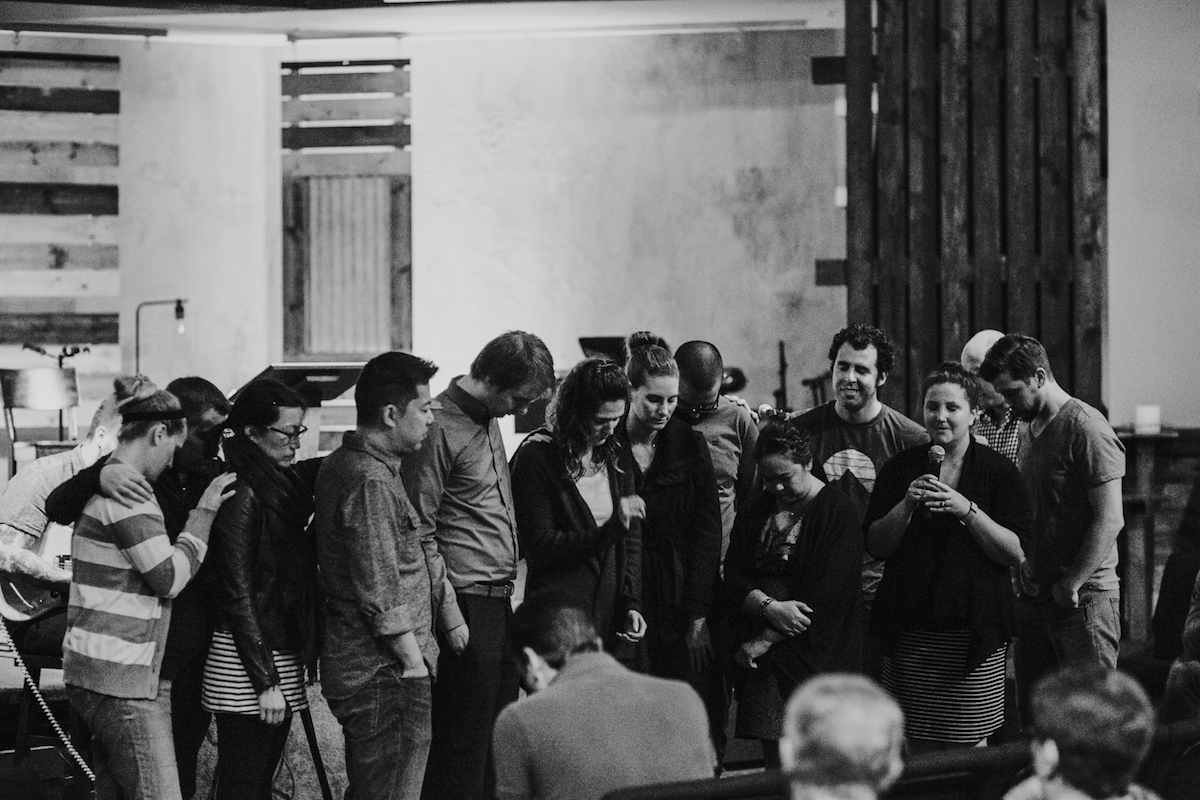One consistent emphasis in Acts 29 that has been helpful to me as a church planter is the reminder that a man must be a godly husband and father before he can be a godly and effective church planter. Church planters need to hear this because we are typically driven men who can pour exclusive focus into a goal and forget to intentionally give ourselves to our most important responsibilities. If we are not intentional in the way we love and parent our children, a bitterness and anger toward the church will grow as they begin to feel like the church gets more of Dad’s attention and affection than they do.
If we are not intentional in the way we love and parent, a bitterness and anger toward the church will grow.
We have all heard horror stories about men and their families in church planting, but a better narrative can be written instead. The question for every church planter is: “How can I order my life in a manner that helps my children love the church?”
Spend Time with Them
When you are planting a church, you can easily fill up twelve hours a day, seven days a week. However, this is not healthy for you, and it definitely will not be healthy for your family. You cannot neglect your children and say you are doing it for the glory of God.
We must prioritize spending daily time with our children so we can have fun with them, connect with them, and teach them. As best as you can, set a normal time that you come home in the afternoons. On days when this is not possible, find an alternative time to make sure you can connect with your family. Then, when you arrive at home, make every effort to be completely there. To prepare for this, pick a spot on your way home, turn off the radio or the podcast you’re listening to, and take a few minutes to clear your mind and pray before you walk in the door. Ask the Lord to help your mind and your heart to be home while you are home.
You cannot neglect your children and say you are doing it for the glory of God.
Spending time with your kids each day builds a strong relationship with them and continually shows them that they are more important to you than growing the church is. Our kids value our time and attention more than anything, so giving them what they crave the most shows them how much we love them. When we consistently come home late, stare at our phones instead of playing with them, or stay constantly agitated because we are stressed, we communicate to them that the church gets our best and they get our worst. So instead of giving them distraction and irritability, give them the kind, whole-hearted love and attention you receive each day from your Father.
Teach Them
Your children need to see continuity between what they hear at church and what they see and hear at home. This begins with your modeling for your children what it means to follow Jesus. They should hear conversations at home about Jesus and how he is working in your life. They should observe how you interact with your wife and see the love Jesus has for his people. They should see you showing practical acts of love and service for your neighbors. They should also see in your interactions with them the same love and grace that you preach to your congregation each and every Sunday.
Your children should observe how you interact with your wife and see the love Jesus has for his people.
Don’t only teach our children in deed, but teach them in word as well. Intentionally labor in your home in light of Moses’ exhortation to the people of God in Deuteronomy 6. The hardest part about this for church planters will be intentionality. Church planters often have a detailed sermon schedule planned out months in advance without giving any advanced thought to what they are going to cover with their children in family devotion. Instead of flying by the seat of your pants, be intentional about making sure that reading the Bible, singing, and praying together at night is part of your regular rhythm in the home. When you do this, your kids will hear the same Gospel truth in the everyday that they hear when they step into the walls of your church plant on Sunday. For them, this kind of regular exposure to the Gospel helps them to see that Jesus isn’t just what Daddy talks about for a living; but that he is your life, and he can be their life too.
Involve Them
Since our kids value time and attention, work to find ways to involve your kids in the ministry you are doing. When my oldest kids were younger, we would often get them involved stuffing bulletins and they’ve helped setting up Communion as they have gotten older. We also discovered pretty early on that my oldest daughter has the gift of hospitality and loves to use it. When a family visits with a child around her age, we can point them out to her and she will go out of her way to go speak and welcome them. In doing this, it’s created in her a feeling of ownership in our church’s mission.
The church should never be something that constantly takes Daddy away from his children.
Every family is different and every child is different, but what are some ways you can involve your kids in the work of your church’s ministry? Even the youngest of your kids can help with little things along the way. Take them with you as you take a meal to someone, give them jobs to do during set-up, let them help get ready for times when you are hosting people in your home, and train them to go out of their way to speak to older members of your church. In little ways like these, they can start to feel like they’re part of what you are doing, and that the church is not something that constantly takes Daddy away from them.
Protect Them
The weight of other people’s expectations can crush your children. If they sense that they are being held to a higher standard than other kids their age because they are the pastor’s kids, it is going to affect how they view Jesus and the church. If necessary, be willing to have kind but serious discussions with the people in your church who teach your children so that they understand how singling your children out can sour them on Jesus and the church. If you hear people make “pastor’s kid” comments, kindly correct them and explain that you do not make a big deal about your child being a pastor’s child and that you don’t want other people to either.
You also need to protect your children relationally. The hardest part of church planting is when your children’s friend’s families leave your church for another church. They wonder why their friend isn’t there anymore and want to know when they will see them again. Then there comes the inevitable moment when the family who has left wants to get together so the kids can see each other, which can create a situation where your kids miss their friends even more because they see them sporadically. If you think this kind of situation is harmful to your child and constantly creates uncomfortable situations for you, you should not hesitate to politely decline to socialize with the other family. A pastor typically gives the bulk of his family’s time to unbelievers, neighbors, and the people who are part of your church. When people choose to leave your church, they place themselves in the “friends who go to other churches” category and you shouldn’t feel guilty for not just getting together to hang out with them. Clearly defining your relationships in this way will protect your kids from even more hurt.
Being a follower, a husband, a father & a planter demand much… thankfully we don’t fulfill them in our own power
The calling to be a follower of Jesus, a husband, a father, and a church planter can often be overwhelming. It often means we get up early to spend time with Jesus, work a full day, come home ready to give our full attention to our children, and then connect with our wives after the kids go to bed. These callings demand all of who we are, but thankfully we don’t fulfill them in our own power. The Holy Spirit provides all of the strength and energy that we need to labor for the glory of God. Every day we must remember all of our callings, and look to the Spirit who will give us constant help.











